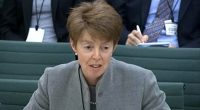But fear not. While heart palpitations and headaches can be caused by many different things, most of them aren’t serious, says David Cutler, MD, a board-certified family medicine physician at Providence Saint John’s Health Center in Santa Monica, California.
Here, learn more about the link between headache and palpitations, and how to relieve a simultaneously pounding head and heart, according to doctors.
In This Article
Experts In This Article
You’re stressed or anxious
Tension that’s left unchecked can affect your body in all kinds of ways. “Stress can lead to tension headaches, while anxiety may cause your heart to beat faster or irregularly,” says Dr. Cutler. At the same time, anxiety can cause symptoms like the following, per the Mayo Clinic:
- Restlessness
- Jitteriness
- Sweating
- Weakness
- Fatigue
- Shortness of breath
- Dizziness
- GI issues like nausea or diarrhea
Another clue you’re potentially dealing with anxiety is if you get a racing heart at night, or in moments where you’re not distracted.
What to do: Try adding calming activities like yoga, meditation, or journaling to your daily routine, to reduce your stress levels and lower your heart rate. You can also try incorporating exercises aimed at improving your heart rate variability, which may help with palpitations from stress.
Additionally, it may be helpful to reach out to a mental health professional for more support. Talk therapy, anti-anxiety medication, or a combination of both can help, too, per the Mayo Clinic.
“Stress can lead to tension headaches, while anxiety may cause your heart to beat faster or irregularly.” —David Cutler, MD, family medicine physician
You’re dehydrated
Not drinking enough water is a known headache trigger, but did you know it can also make your heart beat faster? When you’re dehydrated, you might also notice symptoms like fatigue, dry mouth, or darker pee than usual, per the National Library of Medicine.
What to do: The good news is that mild dehydration is usually easy to fix. “Start by sipping water or an electrolyte drink to gently restore your levels,” says Laura Natbony, MD, founder and medical director of Integrative Headache Medicine of New York in Manhattan.
If you’ve been breaking a sweat, or have been out in hot weather, “taking a break in a cool, shaded area can also provide relief, as can using a cool cloth on the head and neck,” she adds.
Seek emergency medical attention for signs of severe dehydration like confusion, fainting, or rapid breathing.
You’ve had too much caffeine
Overdoing it on the coffee or energy drinks can hurt your head, make your heart race, and leave you feeling jittery and tense. “Caffeine is a stimulant that affects your central nervous system. For some, it can cause the blood vessels in the brain to narrow, leading to headaches,” says Dr. Natbony. Too much caffeine can also increase your heart rate and blood pressure, resulting in palpitations, she adds.
What to do: You should start to feel better as the caffeine clears out of your system, which can take several hours, per the National Library of Medicine. In the meantime, drink some extra water—it’ll help you avoid getting dehydrated, as caffeine can dry you out.
And if caffeine is causing headache and palpitations, consider cutting back on the amount you drink. Most people can tolerate up to 400 milligrams of caffeine per day, or the amount in about 32 ounces of coffee, notes the Food & Drug Administration. (The caffeine in energy drinks can vary widely, so check the label before drinking.)
You have an infection
Having a cold or the flu leaves you feeling lousy from head to toe, so it’s not unusual to get slammed with a headache and heart palpitations, says Dr. Cutler. “Any illness that causes fever can result in a headache,” he adds. And if you end up dehydrated, that could trigger heart palpitations.
What to do: Your game plan can include drinking plenty of fluids to make sure you stay hydrated. Taking an over-the-counter (OTC) pain reliever—like ibuprofen or acetaminophen—can help keep your temperature down and stave off a headache, too, per the Cleveland Clinic.
You’re taking certain medications
Pseudoephedrine, a common OTC decongestant used for coughs and stuffy noses, can sometimes make your heart beat faster, per the University of Iowa. While taking this medication won’t necessarily give you a headache, you might be dealing with existing head pain from your allergies or illness.
What to do: If you’re a generally healthy person and do not have any existing heart conditions, it’s okay to take decongestants as prescribed (or suggested on the label) to relieve congestion. If, however, your heart palpitations last for more 30 minutes, or if you notice symptoms like shortness of breath or lightheadedness, call your doctor. They can let you know whether it’s safe to continue taking the medicine, per the Cleveland Clinic.
You’re not sleeping well
It’s pretty normal to get a headache when you haven’t had enough sleep. Too little shut-eye can also make you stressed or tense, which can trigger symptoms like heart palpitations, per the University of Iowa.
On a greater scale, getting proper amounts of sleep is important for your heart health, and can help reduce your risk of things like heart attack and stroke down the line, per Johns Hopkins Medicine.
What to do: A pain reliever like ibuprofen or naproxen (Aleve) can help curb your headache in the short term. But in order to really feel refreshed, aim to get seven to nine hours of sleep per night, recommends the Centers for Disease Control and Prevention (CDC). You can try to achieve this by:
- Going to bed at the same time every night
- Establishing a relaxing bedtime routine (think: reading, journaling, stretching)
- Creating an ideal sleep environment (i.e., making it dark, cool, and quiet in your bedroom)
You have an underlying condition
Sometimes headaches paired with heart palpitations are a sign of a more serious underlying health problem, like a thyroid disorder or anemia, says Dr. Cutler.
One particular condition that can cause both at the same time, called postural orthostatic tachycardia syndrome (POTS), is characterized by a rapid change in blood pressure when going from siting or lying down to standing, per the Cleveland Clinic.
Though rare, another condition that can cause both head pain and palpitations is called a cardiac headache (also known as cardiac cephalalgia), which can happen during a heart attack. Common cardiac headache symptoms include a sharp pain on one or both sides of your head, often described as “explosive” or like a “thunderclap,” according to a March 2016 review in Acta Cardiologica Sinica.
What to do: If you get headaches with heart palpitations often, let your doctor know. They can run blood work and other tests to rule out and treat any underlying conditions. Treatment for heart palpitations and headache will also depend on the condition you have. POTS, for example, is treated by drinking fluids throughout the day and adding more salt to your diet, per Johns Hopkins Medicine.
And if you think you’re having a cardiac headache (from a heart attack), call 911 and get to the nearest ER as soon as possible to be treated.
Can heart palpitations and headache be from COVID?
Any viral illness that makes you dehydrated can end up giving you heart palpitations and a headache, including COVID, says Dr. Cutler. So again, try to keep sipping those fluids when you’re sick.
It’s also possible to continue having headaches or heart palpitations even after you’ve recovered from COVID. In that case, your symptoms might be a sign of something called long COVID, according to the Mayo Clinic. Other common symptoms include the following:
- Fatigue
- Shortness of breath
- Joint or muscle pain
- Diarrhea or stomach pain
Experts are still not exactly sure why some people get long COVID and others don’t, and they’re still learning how to best manage it. Despite this, it’s best to let your doctor know if you think you’re dealing with long COVID. They can run diagnostic tests (like a blood test, liver function test, or chest X-ray) based on your symptoms and recommend possible treatment options, according to the Mayo Clinic.
What causes heart palpitations and headaches after eating?
A headache and heart flutters after eating can happen for a few reasons. “Eating too much in one go can put strain on your body, causing a dip in blood pressure that might result in headaches and heart palpitations,” says Dr. Natbony.
For some, specific foods may also be a trigger, especially sugary foods, additives like MSG (found in fast food), and tyramine (an amino acid found in aged cheeses and cured meats), adds Dr. Natbony.
How to prevent headaches and heart palpitations
Preventing a simultaneously pounding heart and head will depend on what’s causing both in the first place. That said, here are some general tips you can try to manage headaches with heart palpitations, and feel better overall, per Dr. Natbony:
- Stay hydrated: Your fluid needs will likely change depending on your body size, activity level, and the climate you live in. You’ll know you’re properly hydrated if your pee is clear or pale yellow, per the National Library of Medicine.
- Pay attention to your caffeine intake: Drinking 400 milligrams or less of caffeine per day is generally okay, but pay attention to how it makes you feel. If you’re too jittery, get a headache, or have palpitations, try drinking a bit less and see if you feel better.
- Eat a balanced diet: Staying properly nourished throughout the day can help prevent side effects like headache and heart palpitations. Get plenty of fruits, vegetables, lean proteins, and whole grains. And try to “avoid large meals that can strain your system,” adds Dr. Natbony.
- Exercise regularly: Try to be active every day, but don’t push yourself to extremes. “Intense physical activity can trigger palpitations and headaches in some people, too,” she adds.
- Find ways to manage your stress: Deep breathing, yoga, and meditation are solid go-to’s, but try to find what works best for you, and what brings you the most relief.
When to see a doctor
When to go to the doctor about heart palpitations and headache will depend on the duration and severity of your symptoms, and whether you’re at increased risk for heart issues.
“Healthy people without heart problems having occasional palpitations should discuss the symptoms with their primary physician. But patients with heart problems should call their cardiologist,” says Marc Taub, MD, emergency physician and medical director of emergency services at MemorialCare Saddleback Medical Center in Laguna Hills, California.
And of course, call your doctor right away and go to the nearest ER if you feel severe symptoms like chest pain, trouble breathing, fainting, or prolonged heart palpitations that aren’t going away, adds Dr. Taub.
FAQ
Can heart palpitations cause headaches?
“Heart palpitations won’t usually make your head hurt,” says Dr. Taub. But it’s possible to have heart palpitations and then also get a headache from something unrelated. A common scenario is someone with a heart condition that causes palpitations, says Dr. Cutler. That person might take a medication like nitrogylcerin to control their heart beat, but a side effect of that medicine can be headaches.
Bottom line? One won’t necessarily cause the other, but related or unrelated factors can contribute to feeling both heart palpitations and headache at the same time.
Why does my head hurt when my heart rate increases?
Chances are you’re dealing with an underlying issue that’s causing both symptoms. Stress, dehydration, too much caffeine, and too little sleep are common culprits. But because headaches with heart palpitations can sometimes be a sign of something serious, it’s a good idea to let your doctor know if you’re getting both regularly.
Should I go to the ER for heart palpitations?
Not necessarily. Plenty of non-serious things can make your heart feel fluttery, including stress or anxiety, so there’s no need to panic. That said, you should seek emergency medical attention if the palpitations are intense, aren’t going away, or happen with chest pain, trouble breathing, or fainting, says Dr. Taub.
Source: Well and Good






